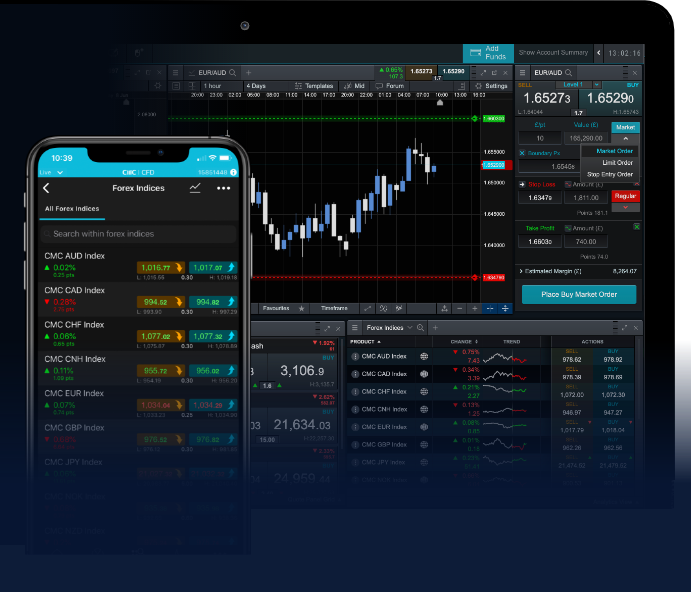Is Forex Trading Gambling Understanding the Fine Line 1964114969

In the world of finance, the terms “forex trading” and “gambling” often evoke strong opinions. To some, forex trading is a legitimate investment strategy that can yield significant returns. To others, it resembles a game of chance, similar to gambling. This article aims to explore the nuanced relationship between forex trading and gambling, investigating whether forex trading truly merits the label of gambling or if it stands apart as a disciplined investment strategy. If you’re interested in trading, you can check out is forex trading gambling Trading Platform PH for resources to get started.
Understanding Forex Trading
Forex trading, or foreign exchange trading, involves buying and selling currencies from around the world in order to profit from fluctuations in exchange rates. Foreign currency exchange is one of the largest markets globally, with an average daily trading volume exceeding $6 trillion. Traders speculate on which currency pair will increase or decrease in value, aiming to capitalize on these movements. Unlike traditional stock trading, the forex market operates 24 hours a day, allowing traders from various time zones to participate at any time.
Defining Gambling
Gambling typically involves risking money or valuables on an event or game where the outcome is largely based on chance. This might include playing slots, betting on sports, or engaging in poker. The psychological thrill and potential for large, quick wins often attract individuals seeking excitement. However, gambling also poses substantial risks, as the odds are often stacked against the player, leading to the potential for significant financial losses.
The Gambling Mindset in Forex Trading
One of the main arguments for likening forex trading to gambling is the mindset and approach of some traders. Many individuals enter the forex market with a speculative attitude, treating it as a game of chance rather than a strategic investment. This can lead to reckless decisions, such as over-leveraging accounts or following trends based purely on emotional impulses rather than solid analysis. In these cases, traders are essentially gambling with their hard-earned money, which increases their likelihood of losses.
Risk Management and Discipline

Unlike gambling, successful forex trading relies heavily on risk management and discipline. Professional traders develop trading plans, use stop-loss orders, and set risk-reward ratios to safeguard their investments. They conduct thorough analyses based on market trends, news, and economic indicators to inform their trading decisions. This disciplined approach sets serious forex traders apart from gamblers, as they aim to mitigate risks rather than purely chase wins.
Skills vs. Luck
One of the critical distinctions between forex trading and gambling is the emphasis on skill and knowledge in trading. Successful traders invest time in understanding market dynamics, strategies, and analytical tools. They continuously educate themselves about the factors that influence currency movements. In contrast, many gambling scenarios rely predominantly on chance, where the outcome is uncertain and dictated by random events. Thus, while luck can play a role in forex trading, skill and experience significantly enhance a trader’s potential success.
The Role of Psychology in Trading and Gambling
Both forex trading and gambling heavily engage the psychological aspect of decision-making. Traders and gamblers alike can fall victim to emotional biases, such as fear and greed, which might lead to impulsive decisions that result in losses. Overtrading, revenge trading, and chasing losses are common pitfalls shared by both traders and gamblers. Thus, maintaining a strong psychological state, developing emotional resilience, and adhering to a trading plan become crucial for success in forex trading.
Public Perception and Regulatory Frameworks
The public perception of forex trading often sees it linked with gambling, mainly due to its speculative nature and the potential for rapid gains or losses. Misconceptions surrounding forex trading can paint it as high-risk gambling, especially among those unfamiliar with the nuances of trading strategies and risk management. Additionally, regulatory frameworks vary across countries, with some viewing forex trading as a legitimate financial activity and others treating it as a speculative endeavor, akin to gambling. The lack of robust regulations in certain jurisdictions can also lead to increased risks for unsuspecting traders.
Conclusion
In conclusion, while forex trading shares some similarities with gambling—particularly when approached without a strategy and discipline—it is fundamentally an investment activity that, when undertaken with a clear understanding of its complexities, can yield substantial rewards. Developing skills, employing strong risk management strategies, and maintaining a disciplined mindset can separate successful forex traders from those who merely gamble. As you embark on your trading journey, educate yourself, remain cautious, and approach the forex market with a balanced perspective, distinguishing it from mere gambling.
